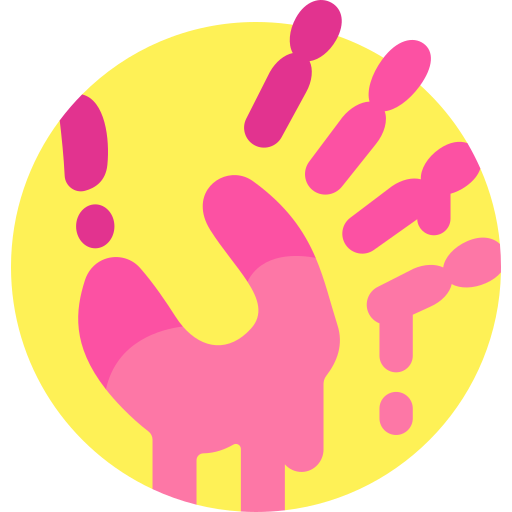If you have any additional concerns you can speak to your Health Visitor. In the meantime here are some links that may help and support you.
![]() Allergies: Visit Allergy UK to find our more about the common allergies that affect children
Allergies: Visit Allergy UK to find our more about the common allergies that affect children
![]() Asthma: Asthma is a common long-term condition that can cause coughing, wheezing, chest tightness and breathlessness, visit NHS Inform for more information
Asthma: Asthma is a common long-term condition that can cause coughing, wheezing, chest tightness and breathlessness, visit NHS Inform for more information
![]() Cerebral palsy: Cerebral palsy is a condition caused by either damage to the brain, or abnormal development of the brain. This damage normally occurs before birth or during a child’s early development. Cerebral palsy is not normally progressive in nature. Visit NHS Inform for more information
Cerebral palsy: Cerebral palsy is a condition caused by either damage to the brain, or abnormal development of the brain. This damage normally occurs before birth or during a child’s early development. Cerebral palsy is not normally progressive in nature. Visit NHS Inform for more information
![]() Cerebral Palsy Scotland: Our mission is to help people with cerebral palsy build skills, knowledge, confidence and relationships. We advocate for the CP community to have life-long access to knowledgeable, compassionate services and support.
Cerebral Palsy Scotland: Our mission is to help people with cerebral palsy build skills, knowledge, confidence and relationships. We advocate for the CP community to have life-long access to knowledgeable, compassionate services and support.
![]() Continence: ERIC is the national charity dedicated to improving children’s bowel and bladder health. Our mission is to reduce the impact of continence problems on children and their families
Continence: ERIC is the national charity dedicated to improving children’s bowel and bladder health. Our mission is to reduce the impact of continence problems on children and their families
![]() Croup: Children with croup have a distinctive barking cough and will make a harsh sound, known as stridor, when they breathe in, visit NHS Inform for more information
Croup: Children with croup have a distinctive barking cough and will make a harsh sound, known as stridor, when they breathe in, visit NHS Inform for more information
![]() Cystic Fibrosis: Cystic fibrosis is an inherited condition in which the lungs and digestive system can become clogged with thick, sticky mucus, for more information visit NHS Inform
Cystic Fibrosis: Cystic fibrosis is an inherited condition in which the lungs and digestive system can become clogged with thick, sticky mucus, for more information visit NHS Inform
![]() Cystic Fibrosis Trust: We're working towards a brighter future for everyone with cystic fibrosis (CF) by funding cutting-edge research, driving up standards of care and supporting people with the condition and their loved ones every step of the way
Cystic Fibrosis Trust: We're working towards a brighter future for everyone with cystic fibrosis (CF) by funding cutting-edge research, driving up standards of care and supporting people with the condition and their loved ones every step of the way
![]() Down Syndrome: A baby with Down’s syndrome is born with more of chromosome 21 in some or all of the cells that make up their DNA. It’s also known as Trisomy 21. Visit NHS Inform for more Information
Down Syndrome: A baby with Down’s syndrome is born with more of chromosome 21 in some or all of the cells that make up their DNA. It’s also known as Trisomy 21. Visit NHS Inform for more Information
![]() Down Syndrome Association: We are a national organisation, committed to improving quality of life for people who have Down’s syndrome, promoting their right to be included on a full and equal basis with others.
Down Syndrome Association: We are a national organisation, committed to improving quality of life for people who have Down’s syndrome, promoting their right to be included on a full and equal basis with others.
![]() Meningitis: can affect anyone, but is most common in babies, young children, teenagers and young adults, visit NHS Inform for more information
Meningitis: can affect anyone, but is most common in babies, young children, teenagers and young adults, visit NHS Inform for more information
![]() Skin rashes in children: Skin rashes in children are common and are often nothing to worry about. Learn about some common skin rashes in children, what their symptoms are and how to treat them. For more information visit NHS Inform
Skin rashes in children: Skin rashes in children are common and are often nothing to worry about. Learn about some common skin rashes in children, what their symptoms are and how to treat them. For more information visit NHS Inform
![]() Tongue Tie: Parent Club Scotland general information. Watch this video for support and advice around breastfeeding
Tongue Tie: Parent Club Scotland general information. Watch this video for support and advice around breastfeeding











 This leaflet is available in other languages- use this
This leaflet is available in other languages- use this 
